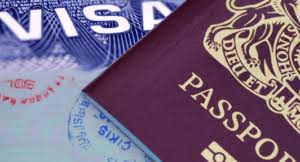
Understanding the EB1 Category
The EB1 visa category is designed for individuals who possess extraordinary ability in the sciences, arts, education, business, or athletics through sustained national or international acclaim. It also includes outstanding professors and researchers as well as multinational executives and managers. Each of these subcategories has specific criteria that must be met by the petitioner to qualify under this prestigious classification.
Gathering Documentation
The preparation of an EB1 petition requires meticulous documentation to prove the applicant's extraordinary ability or qualification. For those demonstrating extraordinary ability in their field, evidence such as awards, media articles, peer reviews, and significant contributions to the field are crucial. Professors and researchers need to show published work, significant research contributions, and endorsements from peers. Multinational managers or executives must provide proof of their managerial position or authority in a company that operates both in their home country and the United States.
Legal Representation and Strategy
Enlisting an experienced EB1 lawyer can significantly influence the outcome of your petition. A skilled attorney will not only ensure that all documentation is correctly presented but will also guide you through complex legal strategies tailored to highlight your unique qualifications. The lawyer's role involves crafting a compelling narrative around your achievements and potential impact on your field in the United States.
Filing Process and Anticipating Challenges
Once all materials are gathered and a solid case is built with your lawyer's help, filing the petition with U.S Citizenship and Immigration Services (USCIS) is the next step. This stage demands precision in following USCIS guidelines to avoid delays or denials due to inaccuracies or incomplete information. Being prepared for possible requests for additional evidence from USCIS can expedite approval processes and reduce wait times considerably.
Frequently Asked Questions
1. What is an EB1 Visa?
The EB1 visa is a category of employment-based, permanent residency in the United States targeting individuals who are outstanding professors or researchers, multinational executives, or possess extraordinary ability in the arts, sciences, education, business, or athletics.
2. Who qualifies for an EB1 Petition?
To qualify for an EB1 petition, individuals must demonstrate extraordinary ability in their field (through extensive documentation such as awards and recognitions), be an outstanding professor or researcher, or be a multinational executive or manager who has been employed overseas in the same corporation for at least one year in the past three years.
3. What are the key documents required for filing an EB1 Petition?
Key documents include a detailed resume or CV, letters of recommendation from peers and industry leaders, evidence of awards and honors, proof of employment for multinational managers and executives, publications and citations for researchers and professors, and any other relevant evidence demonstrating exceptional expertise and recognition in your field.
4. How can an EB1 lawyer assist in the application process?
An EB1 lawyer can provide expert guidance on eligibility criteria, help gather and organize necessary documentation effectively, draft persuasive petition letters and legal arguments to highlight the applicant's qualifications uniquely suited to this visa category. Additionally, they manage communication with USCIS throughout the process.
5. What is the typical processing time for an EB1 visa petition?
The processing time can vary significantly but generally ranges from 6 months to more than a year depending on individual circumstances and USCIS workload. Premium processing options are available to expedite this timeline.
6. What are common reasons for denial of an EB1 petition?
Common reasons include insufficient evidence proving "extraordinary ability" or qualifications for professors/researchers/managers; poorly documented petitions that fail to meet legal standards; not meeting specific criteria set out by USCIS guidelines; errors in application forms; lack of proper legal aid during preparation.